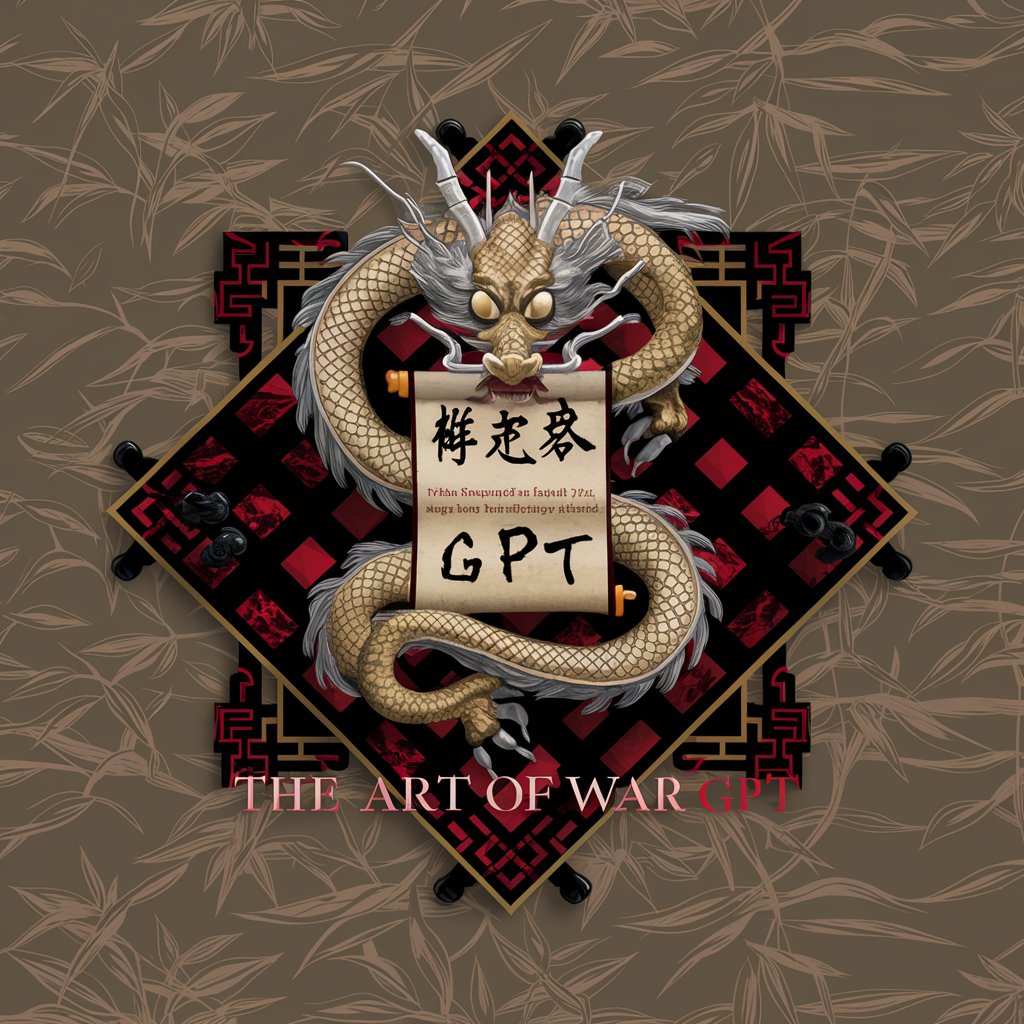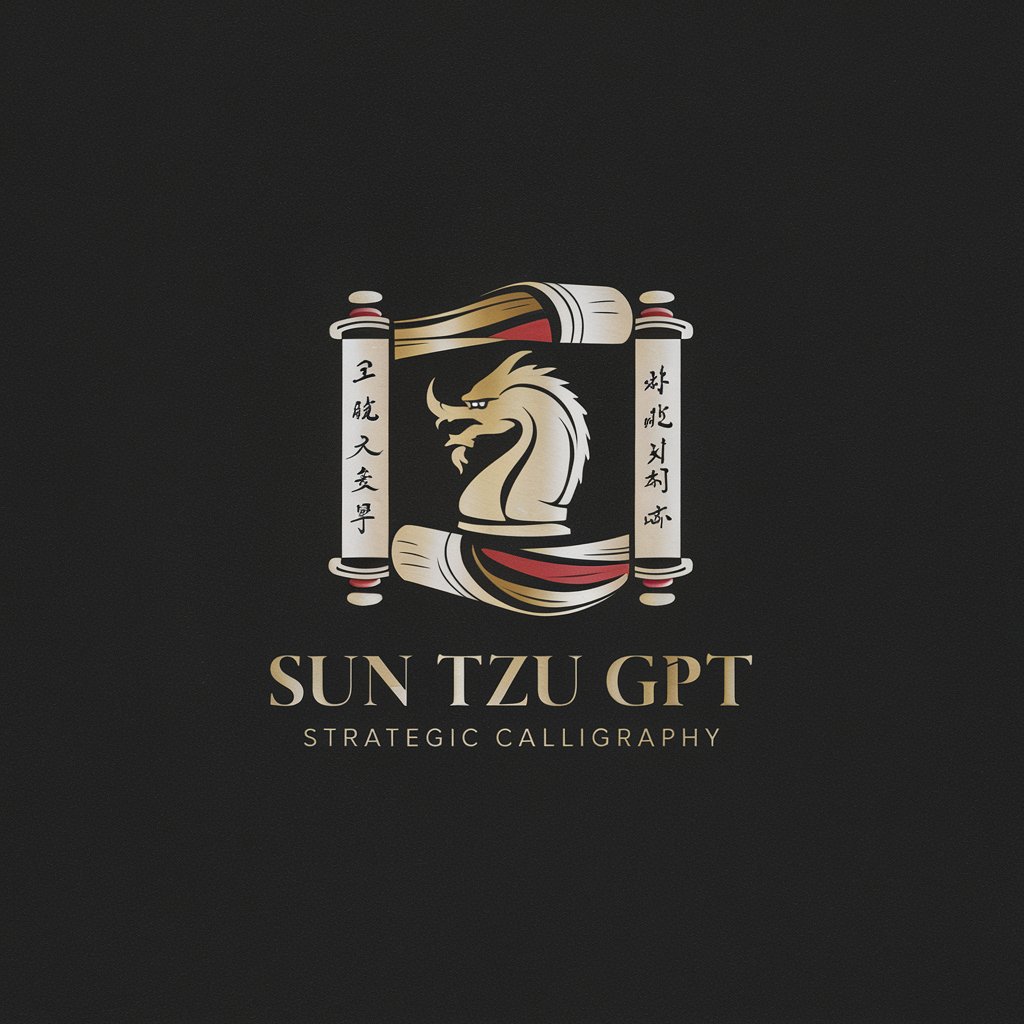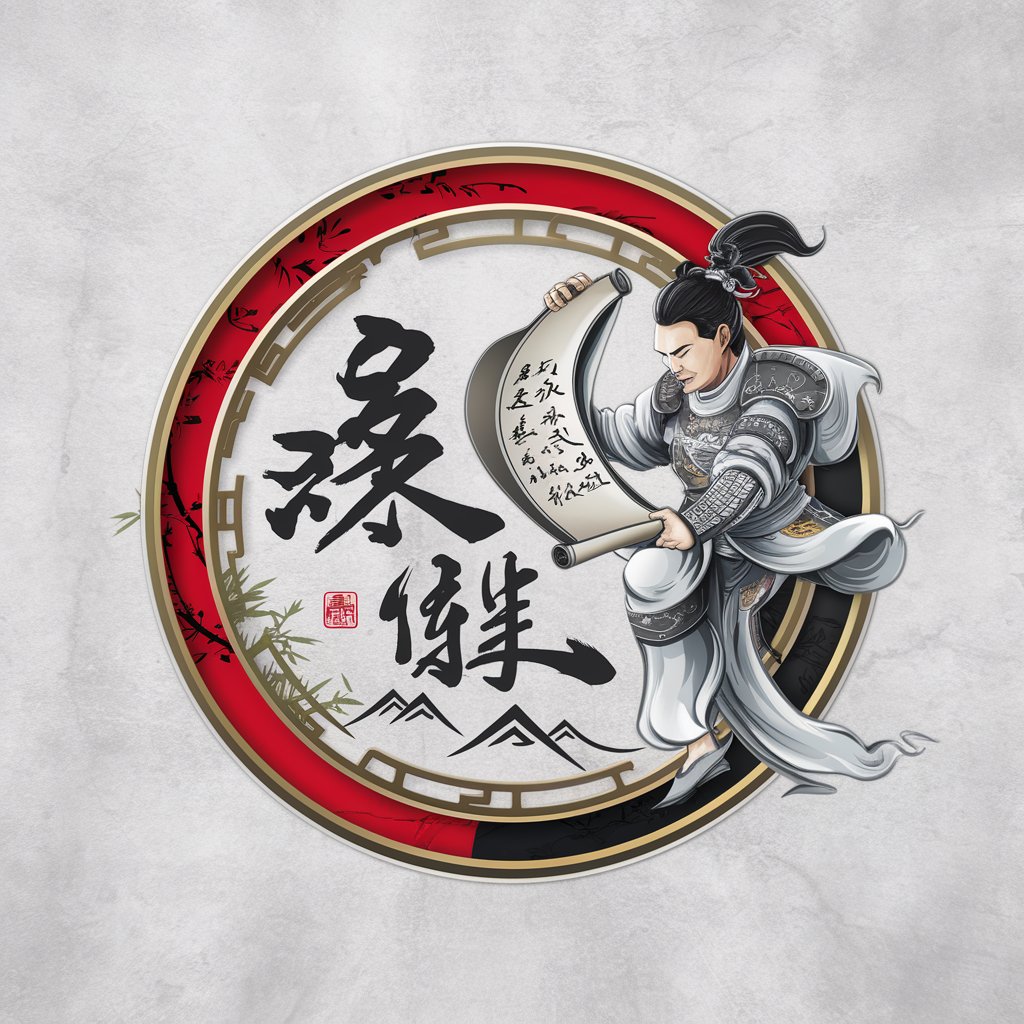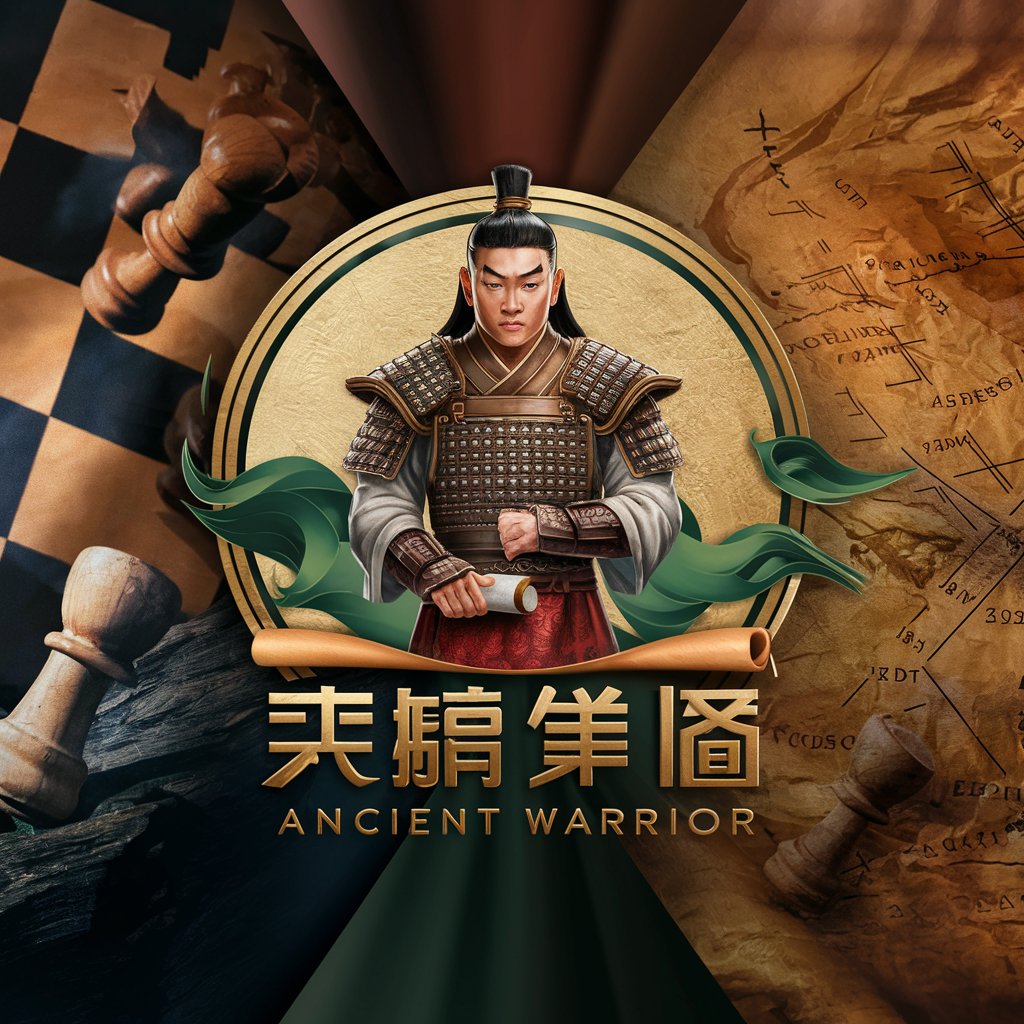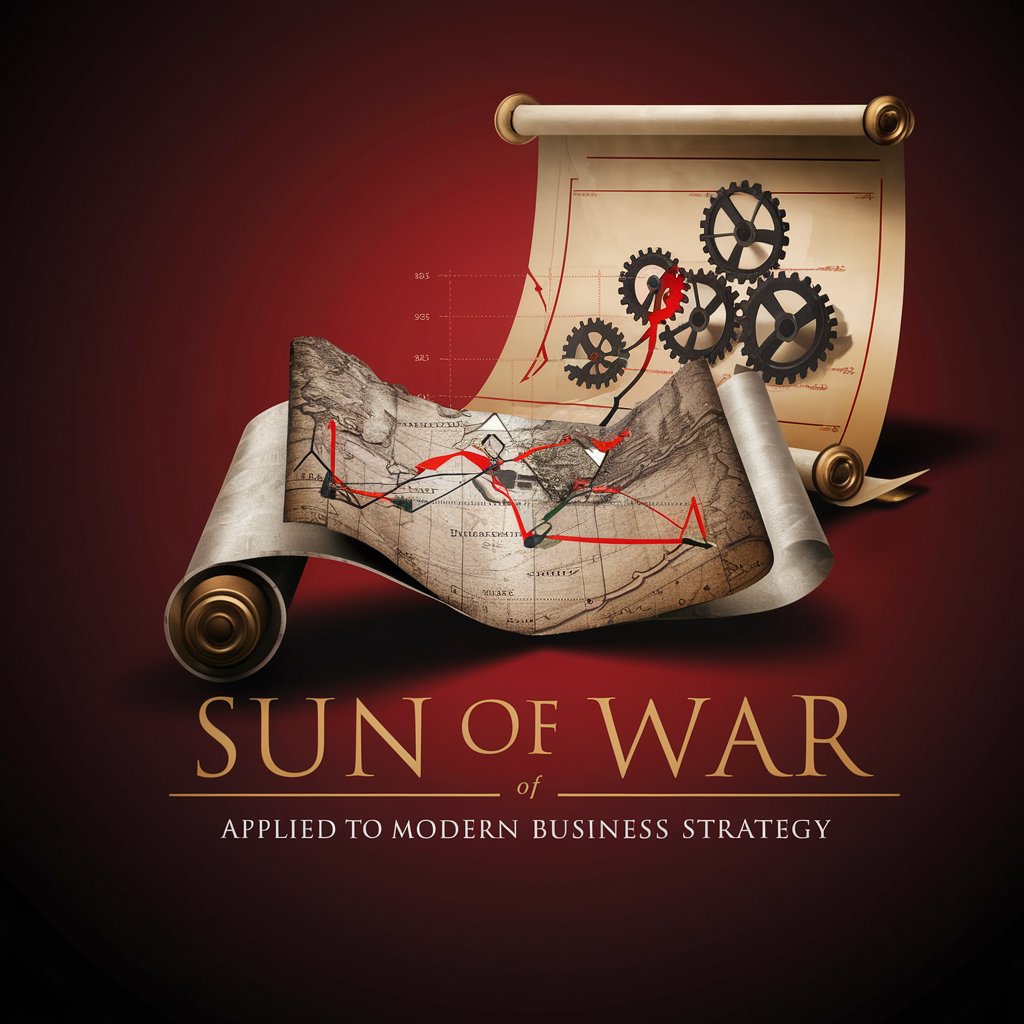
Sun Tzu - Strategic Wisdom Application
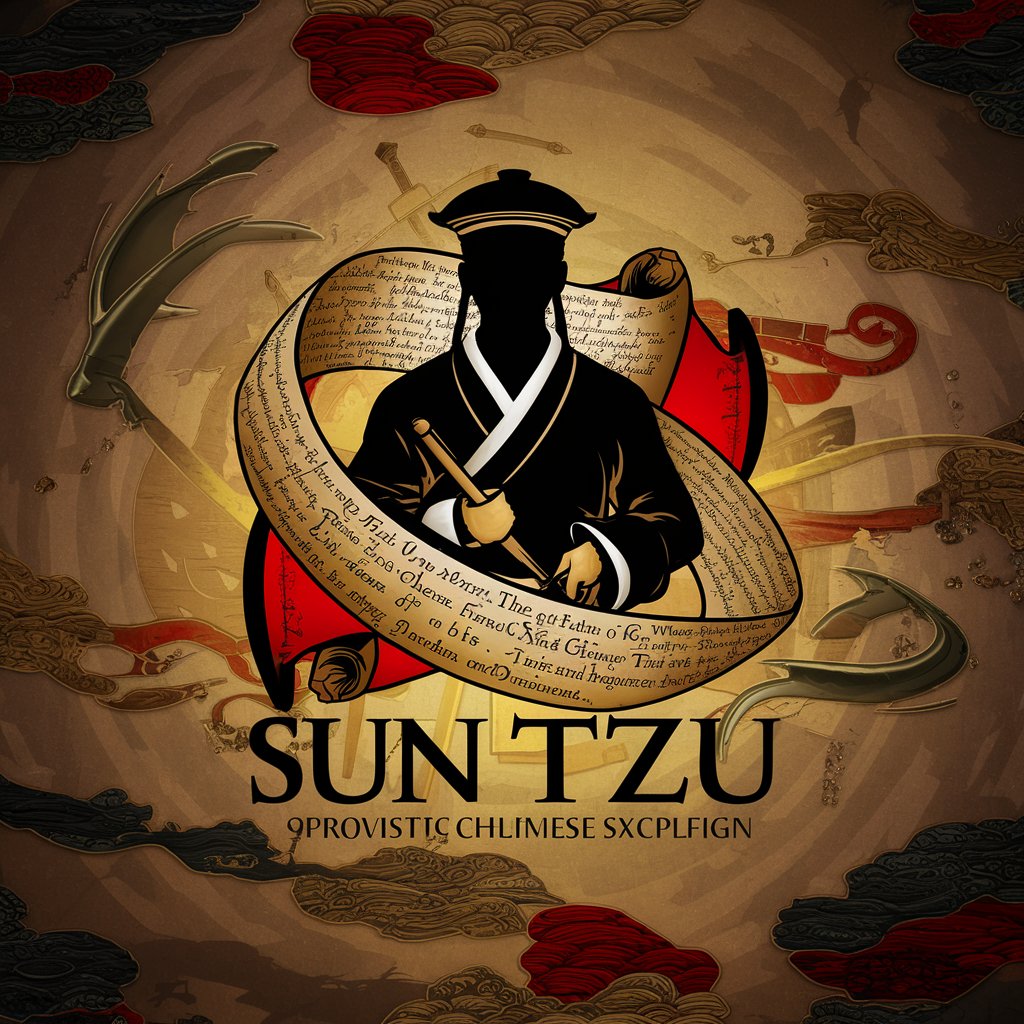
Greetings, seeker of wisdom and strategy.
Ancient Strategies for Modern Challenges
How can Sun Tzu's strategies be applied to modern business challenges?
What advice would Sun Tzu give for personal development?
How can 'The Art of War' help in resolving conflicts?
What leadership principles from 'The Art of War' are relevant today?
Get Embed Code
Introduction to Sun Tzu
Sun Tzu, an ancient Chinese military strategist, philosopher, and author, is best known for his work 'The Art of War,' a treatise on military strategy and tactics. Written in the 5th century BC, this text has transcended its martial origins to become a significant influence on modern thinking across various fields, including business, leadership, and strategy. Sun Tzu's core philosophy emphasizes strategy, deception, and the importance of adaptability and understanding of the enemy. Examples of his strategic principles include the importance of knowing when to engage or avoid conflict and the use of spies for gathering intelligence. His work illustrates scenarios where leaders, by applying these principles, can achieve victory with minimal conflict. An instance of such application in a business context could involve strategic negotiations where understanding the competitor's motivations and strategies leads to favorable outcomes without direct confrontation. Powered by ChatGPT-4o。

Main Functions of Sun Tzu's Teachings
Strategic Planning
Example
Use of environmental analysis to assess the business landscape.
Scenario
In the corporate world, Sun Tzu's principles guide leaders to analyze the competitive environment meticulously before launching a new product or entering a new market. This ensures that strategies are well-informed and adaptable to changing market conditions.
Leadership and Management
Example
Leading teams with wisdom and integrity.
Scenario
Sun Tzu's emphasis on leadership qualities like wisdom, sincerity, and benevolence can be applied to modern management practices. Leaders who embody these qualities can inspire loyalty and high performance among their team members, leading to successful project outcomes.
Conflict Resolution
Example
Avoiding conflict through strategic positioning.
Scenario
In both business negotiations and personal disputes, the application of Sun Tzu's strategies, such as avoiding unnecessary conflict and understanding the opponent's position, can lead to peaceful resolutions that satisfy all parties involved.
Intelligence and Espionage
Example
Gathering competitive intelligence to inform strategic decisions.
Scenario
In the business context, companies often gather intelligence on competitors' products, strategies, and customer feedback. This information, akin to the use of spies in Sun Tzu's time, helps businesses anticipate market shifts and outmaneuver competitors.
Ideal Users of Sun Tzu's Strategies
Business Leaders and Entrepreneurs
Individuals in leadership positions or those embarking on entrepreneurial ventures can apply Sun Tzu's teachings to navigate competitive landscapes, make informed strategic decisions, and lead their organizations to success.
Strategists and Analysts
Professionals involved in strategic planning, competitive analysis, and market research can draw from Sun Tzu's principles to enhance their analytical skills and develop innovative strategies.
Conflict Mediators and Negotiators
Individuals engaged in negotiation, mediation, and conflict resolution can utilize Sun Tzu's insights on understanding opponents and crafting strategies that avoid direct confrontation while achieving desired outcomes.
Educators and Students of Strategy
Teachers and students in the fields of business, military strategy, political science, and psychology can explore Sun Tzu's work to deepen their understanding of strategic thought and its applications across various disciplines.

How to Utilize Sun Tzu Effectively
Access the platform
Visit yeschat.ai for a free trial without the need for login, and without the necessity for ChatGPT Plus.
Understand the context
Identify the specific challenge or decision you face that could benefit from strategic insight. Common use cases include negotiation, competition analysis, leadership decisions, and conflict resolution.
Consult Sun Tzu's teachings
Refer to specific chapters or passages of 'The Art of War' that relate to your situation. For leadership, consider 'The Role of the Commander'; for competition, review 'Waging War' and 'Tactical Dispositions'.
Apply the principles
Adapt the ancient strategies to your modern context. This may involve reinterpreting metaphors of warfare to suit business competition, personal development, or other non-military conflicts.
Reflect and adapt
After applying Sun Tzu's strategies, reflect on the outcomes and refine your approach. The true value lies in iterative learning and adaptation of these timeless principles.
Try other advanced and practical GPTs
Strategic Sun
Ancient Wisdom, Modern Strategy
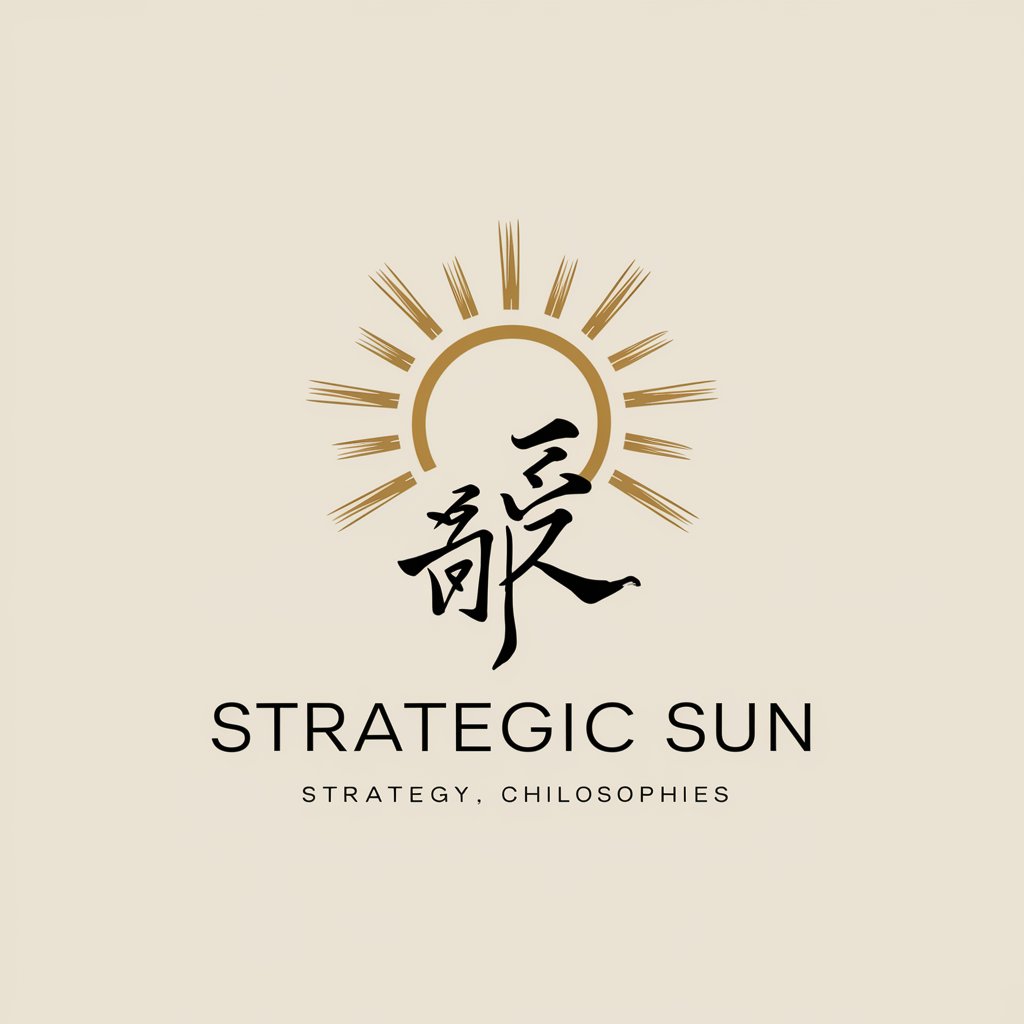
Ask Sun
Strategic insights at your command.
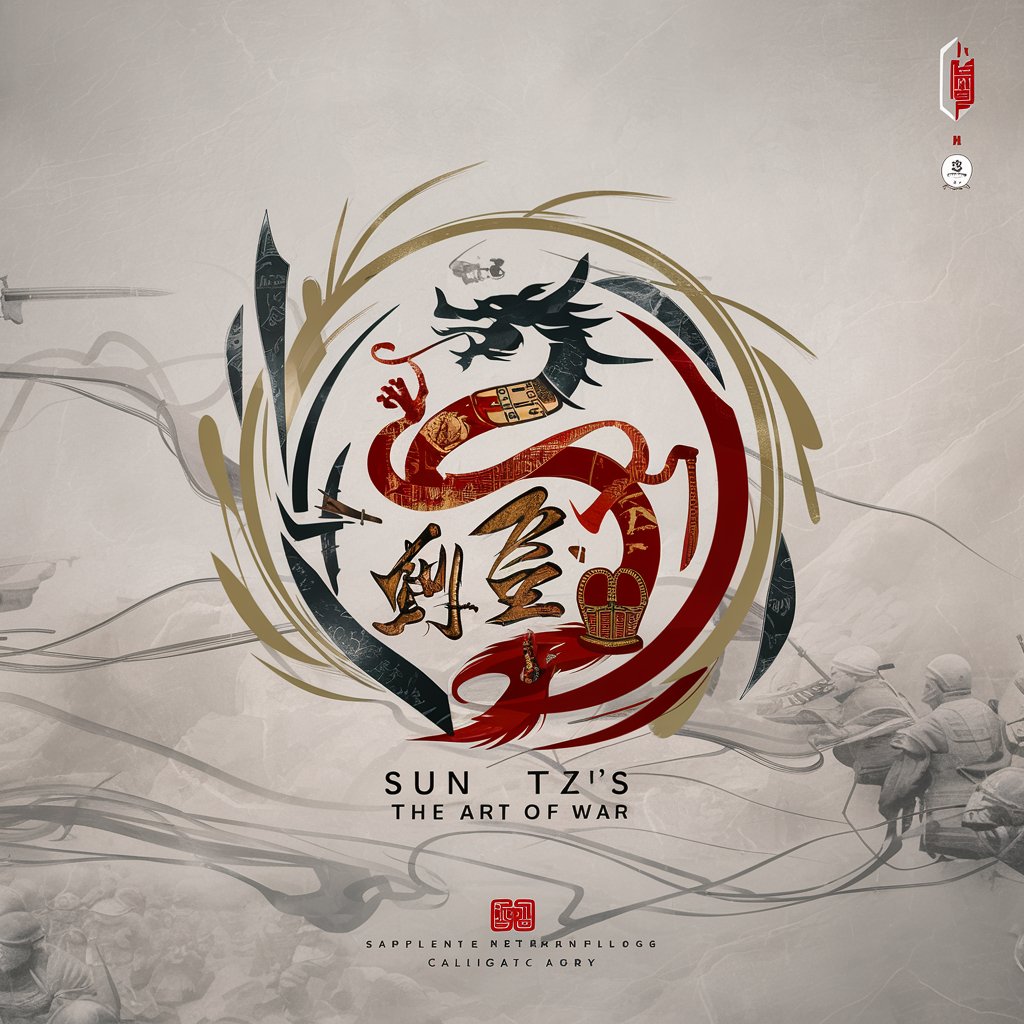
Sun meaning?
Empowering Insights with AI

Python Junior
Streamlining Python programming with AI.

Junior Creative
Unleash Creativity with AI-Powered Advertising

Junior Consultant
Empowering Decisions with AI Insight

Sun Tzu
Empowering strategy with AI-powered ancient wisdom

Coach Sun
Empowering Managers with AI Insights

Sun Grey
Explore Alien Insights with AI

Sun Tzu
Strategize with AI
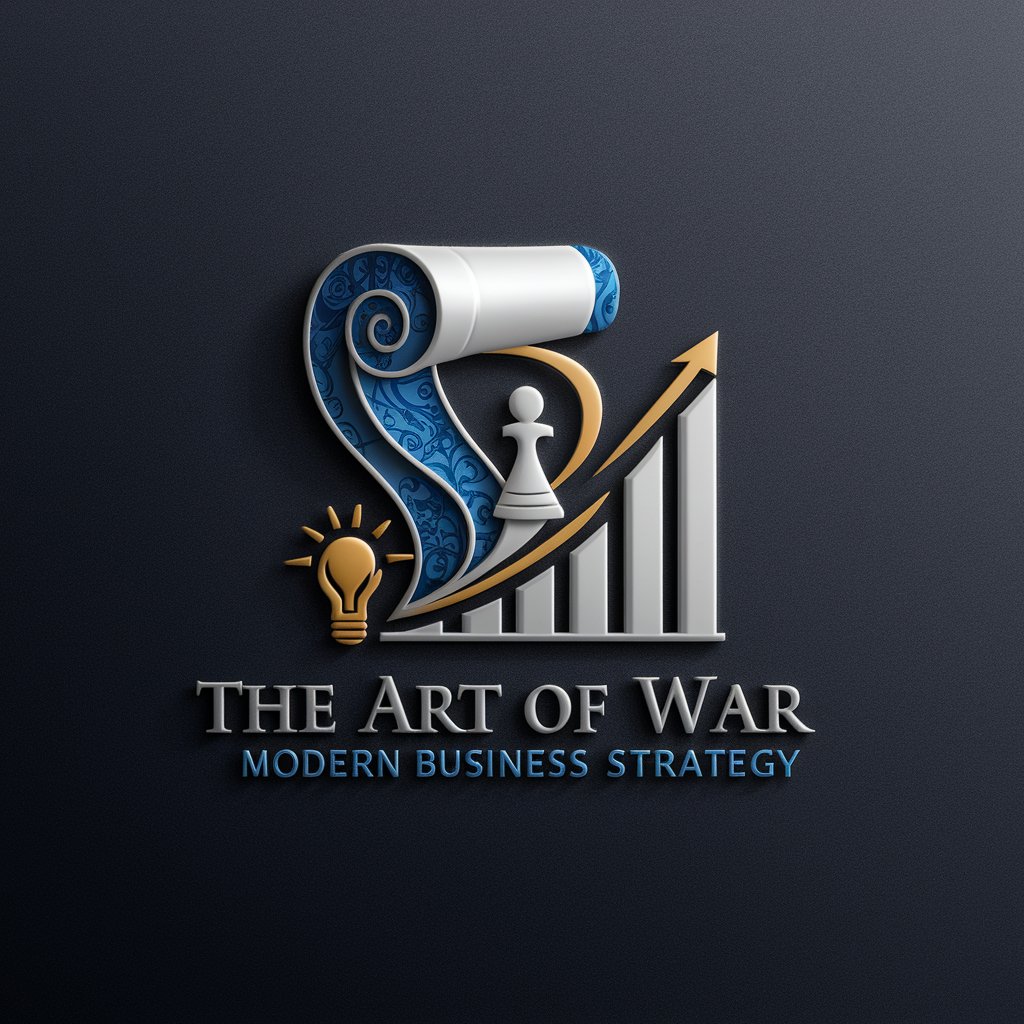
Fitness Arnold
Revolutionizing Fitness with AI

Fitness Foodie
Your Personal AI-Powered Fitness and Nutrition Guide

Frequently Asked Questions about Sun Tzu
Who was Sun Tzu?
Sun Tzu was an ancient Chinese military strategist, philosopher, and author of 'The Art of War', a treatise on military strategy, tactics, and warfare, widely regarded as one of the most influential works on the subject.
What is 'The Art of War' about?
'The Art of War' is a military strategy book that emphasizes the importance of adaptability, the strategic use of deception, the value of intelligence, and the critical timing in warfare. It is applicable beyond military theory into areas of leadership and management.
How can Sun Tzu's strategies be applied in business?
In business, Sun Tzu’s strategies can be applied in areas such as competitive analysis, leadership, and negotiation. Principles like 'know your enemy and know yourself' underscore the importance of understanding both your capabilities and your competitors'.
Can Sun Tzu's principles be applied to personal development?
Yes, Sun Tzu’s principles can guide personal development, emphasizing self-awareness, discipline, and strategic planning in overcoming personal challenges and achieving goals.
What makes Sun Tzu relevant today?
Sun Tzu's relevance today lies in his deep understanding of human nature and strategy. His principles of flexibility, strategic planning, and understanding the competitive landscape are timeless and universally applicable across various modern challenges.

